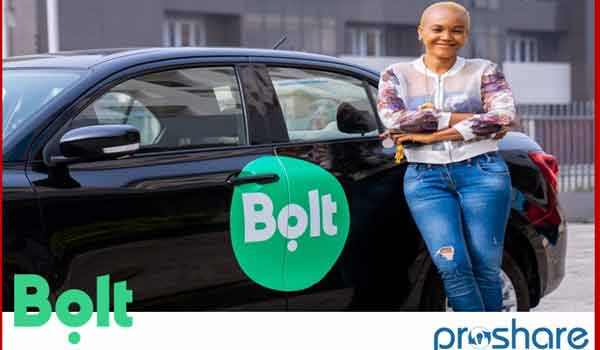Before 2020, the average annual Gross Domestic Product (GDP) growth for Africa consistently outperformed the global average and was estimated to grow by at least six per cent annually until 2023.
As one of the fastest-growing economies, Africa’s economic growth is primarily due to its sizeable working-age population of about 1.2 billion people and growing consumer markets in the region.
According to the World Economic Forum, “Africa – the youngest region globally, will be the source of most global labour-force growth.”
It is projected that half of Africa’s population will be under 25 years old by 2050. The implication of this is the availability of labour to enhance productivity, sustain the economic boom, and reduce poverty.

2020 hit the continent’s prospect, casting gloom on economic revival with lowered productivity and economic recession. The World Bank’s bi-annual economic analysis estimates that economic growth in the continent contracted by two per cent in 2020, with prospects for recovery currently strengthening amid actions to contain new pandemic waves and speed up vaccine rollouts.
Also, growth is expected to reach between 2.3 per cent and 3.4 per cent in 2021, with GDP growth estimated at 3.1 per cent by 2022.
The upside is predicted considering the African Continental Free Trade Area (AfCFTA) potential, which will play a crucial role in diversifying African economies. The AfCFTA, according to the United Nations Commission for Africa (UNECA) Economic Report for Africa 2020, could generate a combined consumer and business spending of $6.7 trillion by 2030.
Amidst the economic growth, turmoil and recovery, private sector investment has been a propelling factor.
In the first half of 2020, $1.1 billion was raised in Africa. Private sector investments supplement government efforts in any country.
This benefits societies, translating into more jobs and better income. Considering the young population, Africa has moved towards a digital transformation that could change the continent’s trajectory.
This has helped boost productivity while providing jobs for an increasingly technology-savvy population. One of the private sectors contributing to the African economy is the ride-hailing industry.

It has been a tremendous contributor by solving some of Africa’s most significant challenges while providing an avenue for extra income either as full-time or part-time driver-partners.
This tells the story of Bolt, one of Africa’s leading ride-hailing platform, which expanded into the continent with its first launch in South Africa in 2016.
Bolt Regional Director for Africa and Middle East, Paddy Partridge, revealed that the continent remains one of the company’s strongest regions with great potential for further growth.
About five years after the commencement of operations in the region, Bolt has built its presence in over 70 African cities in at least seven countries and has plans to diversify its mobility services by the end of 2021.
Presently, Bolt operates in over 20 towns and cities in South Africa. In addition, the platform is present in over 25 states in Nigeria, with recent launches in Umuahia, Abakaliki, Yenagoa and Lafia.
“Our strategy in Africa is to be present in as many cities as possible in each of the markets where we have operations,” he added.
Paddy also informed that the company would announce its presence in other countries beyond the seven existing before the end of the year.
“We are actively looking at several new markets where the urban population is sizeable and smartphone penetration significant, and where we believe there is an opportunity to improve the convenience and affordability of transport. As a result, we hope to announce a few new countries before year-end,” he said.
Everywhere Bolt operates, it strives to be a development initiator. The strategy to expand, especially in towns and smaller cities, is a way to create opportunities for more income while extending the convenience of mobility services to everyone.

Also, in achieving development, environmental sustainability is critical. Paddy shared that the mobility platform has a Green Plan to make mobility in the continent more environmentally sustainable and hopes to roll out forms of electric micro-mobility over the next 6-12 months.
Bolt is set to become the largest micro-mobility player in Europe, investing over 100 million Euros in electric scooters and bikes.
Its ecological journey has been successful in Europe, with its rides 100 per cent carbon neutral. For Africa, the offering has been introduced in Kenya with Bolt Green to offer eco-friendly rides.
The category has hybrid and electric cars to reduce emissions during trips taken on the Bolt platform, thus offering greener transport options. The plan is to expand the green approach across Africa as the platform contributes to sustaining communities.
25Improving access to safe and comfortable mobility and earning possibilities, especially in Africa, is core to Bolt’s values and a part of its business.
The company continuously improves features on its platforms while engaging in empowerment and skills development.
In commemoration of International Women’s Day, 2021, marked recently, Bolt launched a programme to encourage women participation in the Technology industry.
The initiative inducted as #Drive4WITech is an internship programme for young women who choose to challenge the status quo and jumpstart a career in the technology industry.
The programme aims to bridge the gap and create more opportunities for gender inclusion in the technology sector by offering internship opportunities in Operations, Engineering, and Product Design.
Bolt Country Manager, Nigeria, Femi Akin-Laguda, said: “The tech industry in Nigeria and Africa continues to enhance productivity while fostering economic growth. We must continue to leverage the opportunities it provides to prepare Africa for the future.
“At Bolt, we also understand the important role of women in societal development. By establishing the #Drive4WITech programme, we hope to contribute to capacity building for young women and create the opportunities necessary for women to have an increased impact on Africa’s technology and mobility sectors. “Through initiatives like this, we continue to show our support and commitment towards Africa’s advancement by enabling young people and especially women in creating a diverse and inclusive society that fosters productivity and delivers the Africa of their dreams.”
Bolt has maintained productivity by supporting Africa with income optimisation initiatives for current and potential driver-partners.
However, considering that the average GDP per capita in Africa as of 2019 stood at $1,596 while the average price of used cars in Africa is sold for about $5,000, it can be quite challenging for e-hailing drivers to acquire suitable vehicles. To manage this, a good number of driver-partners engage in hire-purchase options, which requires them to return a bulk sum of their weekly income to the car owners.
The average hire-purchase condition in Nigeria requires drivers to remit a significant amount weekly, aside from funding all car maintenance bills. Considering this, Bolt launched a Vehicle Financing scheme in partnership with Sterling Bank, which will help driver-partners own a car with low equity repayment and optimise their income while retaining its bulk.
With the vehicle financing scheme by Bolt, drivers will be able to enjoy upfront equity contributions for as low as 15 per cent and a weekly-instalment payment of N15,000. Other benefits include comprehensive insurance, monthly fuel card, and vehicle tracking for new and preowned cars with a three to four-year repayment plan. Bolt’s commitment to its driver-partners is exemplary, spending about € 9 million on driver retention programs.
In Africa’s continuous journey to productivity, Bolt strives to drive consolidated effort in identifying the needs of the communities to promote economic growth and foster development. This is evident as the market leader continues to drive growth in Africa’s mobility sector and revolutionise the continent’s transport sector.

 News1 week ago
News1 week ago
 Celebrities Auto1 week ago
Celebrities Auto1 week ago
 News1 week ago
News1 week ago
 News1 week ago
News1 week ago
 Celebrities Auto5 days ago
Celebrities Auto5 days ago
 Celebrities Auto1 week ago
Celebrities Auto1 week ago
 Concept Cars1 week ago
Concept Cars1 week ago
 Car Facts6 days ago
Car Facts6 days ago


